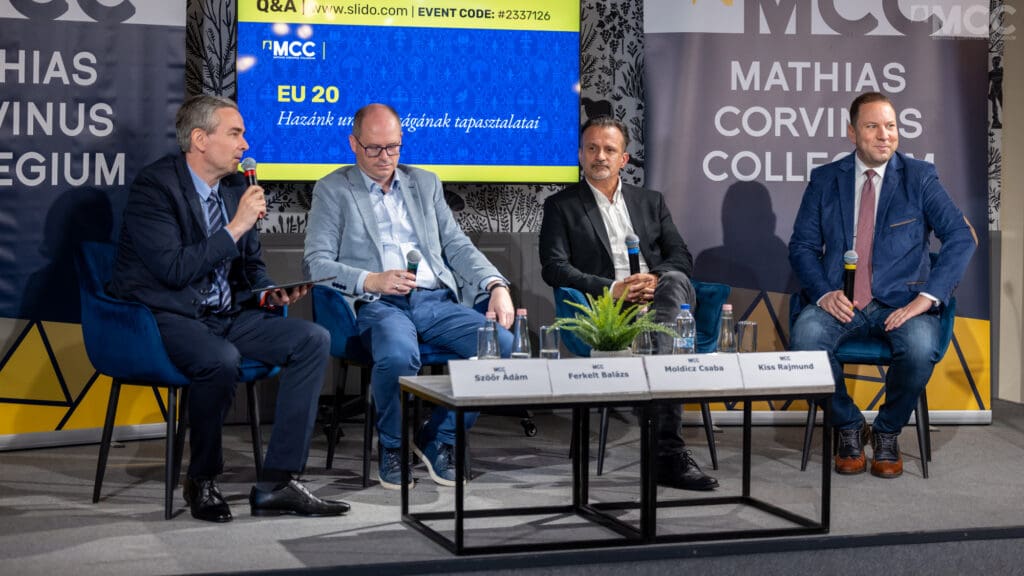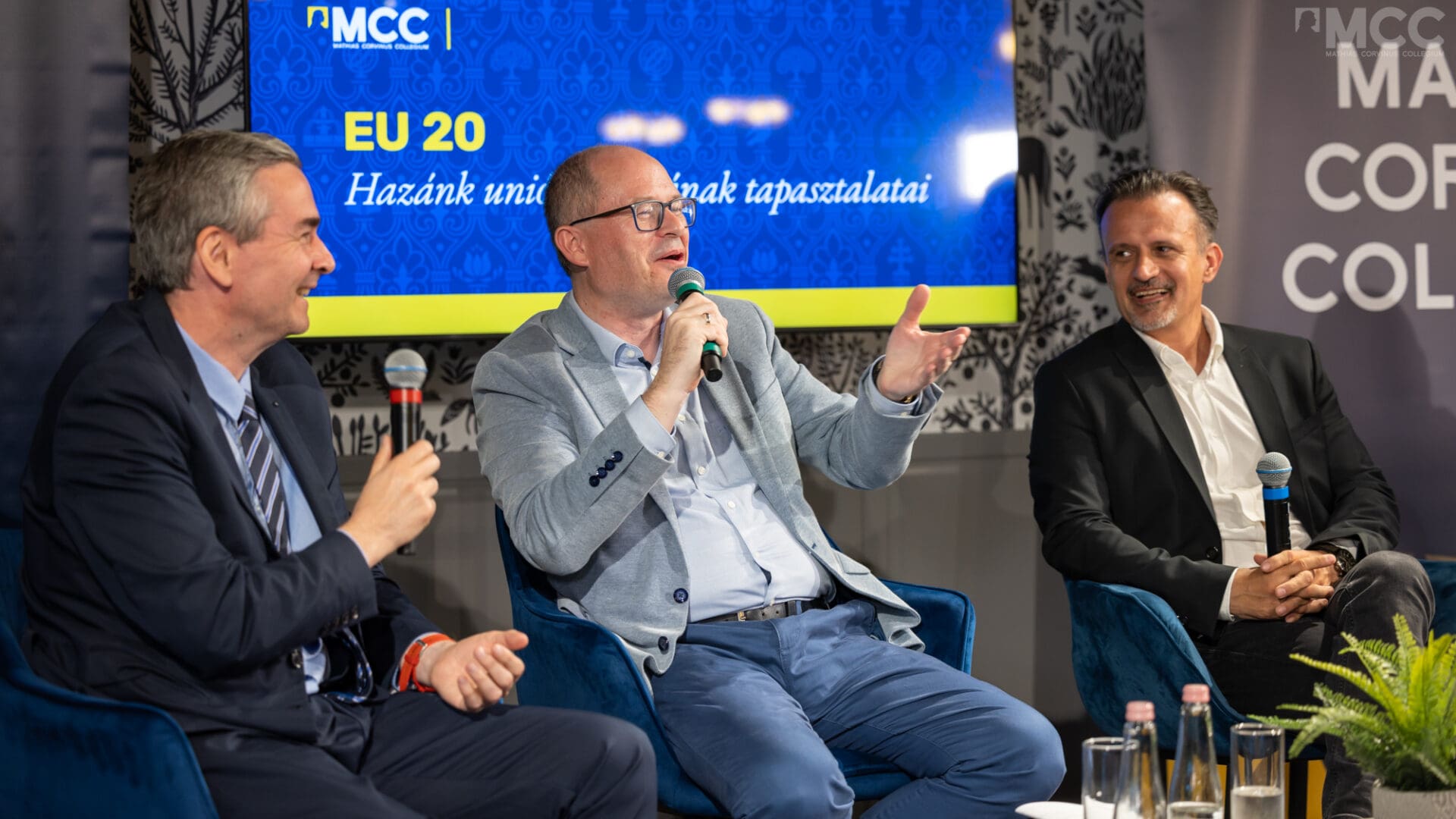Historians dubbed 1 May 2004 as a historic day, marking Hungary’s accession to the European Union (EU), as discussed during a roundtable discussion organized by the Mathias Corvinus Collegium (MCC) on Thursday in Budapest.
Head of the Diplomacy Workshop at the MCC School of International Relations Rajmund Kiss noted that Hungary’s integration into the EU has significantly enriched the Union. However, he remarked that the unity within the EU is not as strong as it was twenty years ago. He believes that with a conservative turn, the European Union could become more successful and competitive than it currently is.
Economist and associate professor at the Budapest Business University Balázs Ferkelt likened EU membership to a marriage where both parties and the environment have undergone significant changes. He concluded that while Hungary has shown remarkable economic performance and the EU has made progress, there is a significant disadvantage in terms of competitiveness.
Head of the MCC Center for International Economy Csaba Moldicz pointed out that due to radical changes in the global economic environment and technological advancements, economic integration has relatively diminished in significance.
In response, Kiss elaborated that
Brussels’ bureaucracy has undergone cultural and ideological changes,
with increasing tendencies to assume more regulatory powers from member states. He criticized the current lack of partnership within Brussels’ bureaucracy, while starting a trend of dictating lifestyles and thoughts. He emphasized instances where Brussels imposed its will on member states, contrary to their preferences. Ferkelt highlighted Hungary’s focus on developing transportation infrastructure using EU funds, making it a leader in Central and Eastern Europe in terms of highways and expressways. He also emphasized the importance of agricultural, educational, and entrepreneurial development supported by EU funds.

Kiss noted that the expansion of the highway system is attracting more industries to rural areas. He discussed the need to establish an economic model that embraces both Western and Eastern philosophies rather than solely aligning with one. Moldicz stressed the importance of infrastructure investments for trade and advocated for improving north–south connectivity within the EU. Regarding the Eastern opening, he highlighted the shift in investment sources from predominantly Western to increasingly Eastern and the need for adaptation to this change. Ferkelt added that Hungary’s EU membership has made it doubly attractive to Eastern investors, with Eastern companies typically targeting European markets.
The roundtable discussion also considered the potential impact of Donald Trump’s presidency on Europe.
Kiss suggested that Trump’s victory could influence the EU’s stance on issues such as illegal migration and the defence of conservative Christian values. He emphasized the short-term importance of resolving the Russo–Ukrainian conflict and restoring the disrupted world order. The experts agreed that one of the key topics during Hungary’s EU presidency should be the integration of the Western Balkans. Ferkelt stressed its significance for enhancing relations with neighbouring countries and its security policy dimension. Kiss criticized the EU’s current leadership for favouring Ukraine’s accession despite its unpreparedness for the process.
Related articles:








